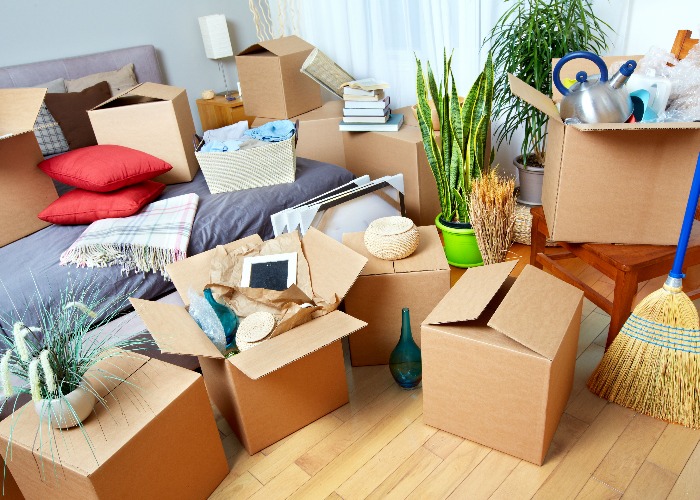Buying your first home: Stamp Duty, solicitors fees and other additional costs

The deposit’s just the beginning: taxes, moving and furnishing your new home can cost tens of thousands of pounds. We explain the main costs and how to reduce them.
Deciding to buy your own place means working out what you can actually afford.
Firstly, you’ll need enough in savings to get a mortgage which is highly important: if you’re not sure, we’ve explained it here.
However, the deposit for your mortgage is just one of several costs you’ll need to pay before you eventually collect the keys for your new home.
These costs can run into the tens of thousands of pounds, so it’s vital you consider them at the start of the home buying process.
Just as you’d look for a cheap mortgage, it’s also possible to cut the costs of these extras with a few simple tricks
We’ve listed the top expenses, what you’ll pay and how to cut costs.
Stamp Duty
£0 - £20,000+
Keep calm and read on, because if you and anyone buying with you are first-time buyers it’s very easy to pay less Stamp Duty.
If the property is worth up to £300,000 you won’t have to pay any Stamp Duty at all.
For properties worth between £300,000 and £500,000, you’ll pay 5% on the amount over £300,000. So, a £500,000 property would require £10,000 in Stamp Duty.
Once you get over the £500,000-mark, Stamp Duty gets very expensive, as you don’t get any discount from the Government.
You don’t pay any Stamp Duty on the first £125,000, then 2% on the next £125,000, then 5% on the remaining amount (up to £925,000).
That means a £600,000 property is taxed £20,000, and – inexplicably - a property worth £501,000 is taxed £15,050.
With these costs, you should think carefully about crossing the £500,000 threshold, especially as that’s likely to make you ineligible for schemes like Help to Buy (read about it here), even in London.
You can get a better idea of how much Stamp Duty you'll pay by reading this article.
Solicitors, mortgage and survey fees
£750+
With luck, most of us won’t have to deal with a solicitor until we buy our first home, at which point they constitute an unavoidable and expensive part of the process.
Solicitors and conveyancers do the actual paperwork and amass a stack of fees for services, which is payable towards the end of the process.
These include conveyancing, anti-money laundering checks, title deeds, searches, property fraud checks, transferring ownership, fees for leaseholds and bank transfer fees (the Home Owners Alliance has a great guide to what these terms actually mean).
It is possible to reduce costs by hiring a conveyancer instead of a solicitor – although they can’t do as much – and by comparing quotes from different solicitors/conveyancers.
Make sure they’re accredited with your mortgage lender (or be prepared to pay yet another £200) and ask for a breakdown of fixed costs; avoid paying by the hour.
Mortgage fees
Some mortgages have arrangement fees, going up to £2,000, and you may also be charged for the valuation and by the mortgage broker if you use one.
However, there are great free mortgage brokers available, who can also save you money on your mortgage, whilst many lenders will waive the valuation fee for certain mortgages.
It’s also possible to get the arrangement fee rolled into the mortgage so it doesn’t represent an upfront cost: ask your lender or broker.
Read more about mortgages and how to get a good deal here
Additional survey fees
If you’re buying an older property, or want more reassurance, you may want to commission your own survey.
Depending on the level of the survey (more on these here), these should reveal faults in the house, allowing you to hold the seller legally responsible and possibly negotiate a discount.
Additional surveys are optional, cost around £400 – £1,000 and you can compare surveyors online. Just make sure they’re RICS accredited.

Moving costs
£0 - £800+
Perhaps the most exciting part of buying a home, moving in can cost as much as you make it.
You could just use your own or a friend’s vehicle – or hire a van - and get help from friends.
Alternately, you could hire a man with a van for £50-£60 per hour or a more expensive professional mover accredited with British Association of Removers or Professional Mover Association.
There are a number of online comparison sites including Compare My Move, Get a Mover, Any Van, Buzzmove and Shiply.
Moving into your new home also means moving out of your own home, so if it’s a rental property check for penalties and how to avoid paying rent on an empty property.
New home furnishing and set-up
£150+
The figures here are approximate but moving into a new home involves first month payments for electricity (and possibly gas), water, broadband and line rental and buildings and contents insurance.
Buildings insurance is required by most mortgage lenders.
In all cases, make sure you compare prices online, such as broadbandchoices.co.uk. You may also be able to save money using cashback websites Quidco and TopCashback.
If you are living in a leasehold property you are also likely to pay a service charge and ground rent. If you’re in an older property, you may not to contribute to or pay for renovations yourself.
Finally, you’ll need the fill up all that empty space. If you need new pieces of furniture and appliances look out for online sales, consider getting a 0% purchase credit card to spread out the cost and avoid rent-to-own outlets, which can be highly expensive.
Worked out how much you can afford? Read our guide to deposits or our list of best ways to save for your first home.
Comments
Be the first to comment
Do you want to comment on this article? You need to be signed in for this feature